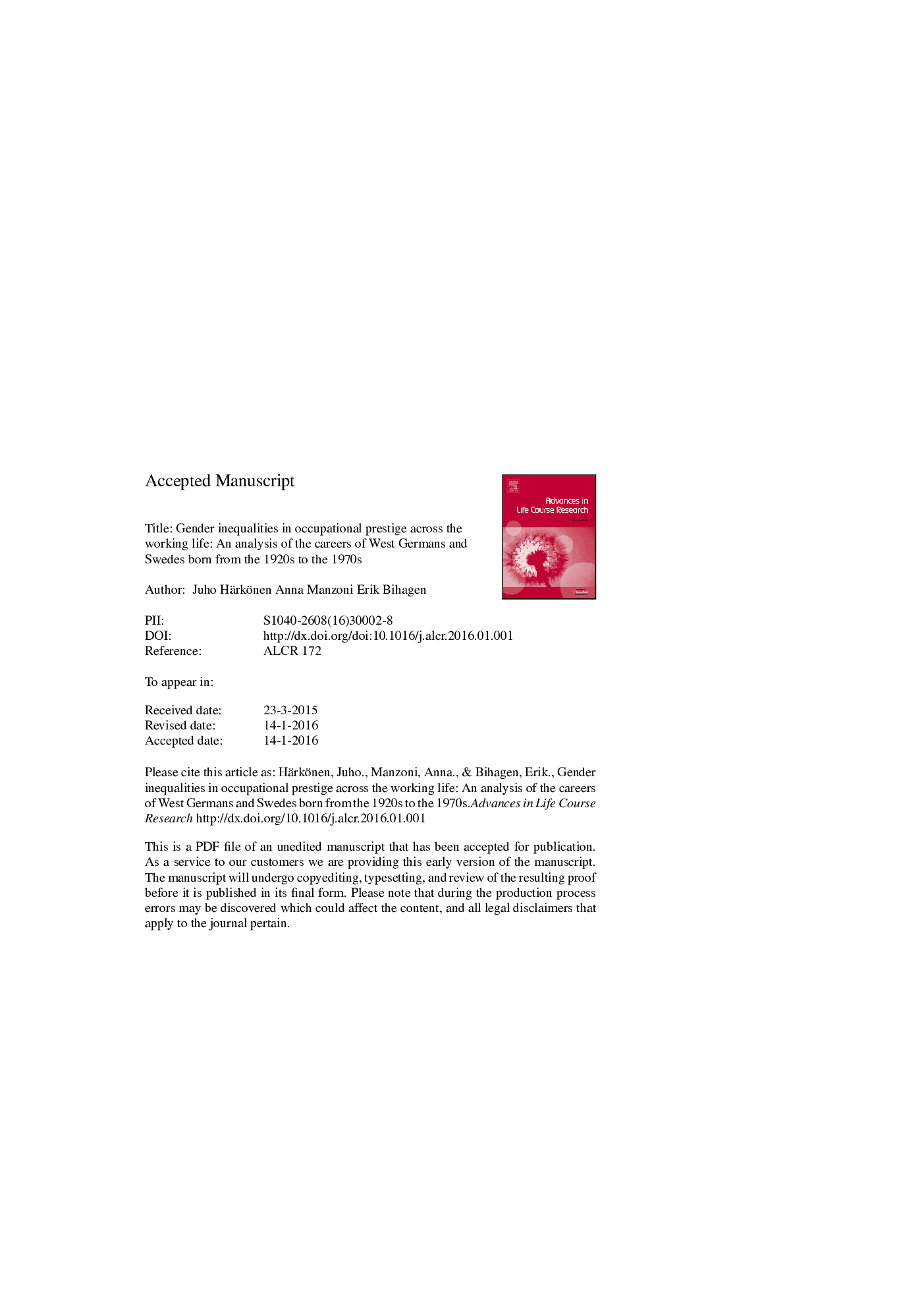| Article ID | Journal | Published Year | Pages | File Type |
|---|---|---|---|---|
| 6784832 | Advances in Life Course Research | 2016 | 35 Pages |
Abstract
Using retrospective occupational biography data from West Germany and Sweden we analyze gender inequalities in occupational careers in three birth cohorts (1920s to early 1940s, mid-1940s to early-1960s, and mid-1960s to late 1970s). We ask whether gender inequalities are generated at labour market entry, whether career progression and parenthood weaken or strengthen such gender inequalities, and how they differ across cohorts in the two countries. With data from the German Life History Study and the Swedish Level of Living Surveys, we used growth curve analysis to model career developments in occupational prestige. We find less change in occupational prestige across careers in Germany than in Sweden. In both countries a clear female disadvantage in occupational prestige in the oldest cohort has turned into a female advantage in the youngest cohort. This is only partially explained by changes in educational attainment levels. We also find a substantial motherhood penalty in careers in both countries, which has shifted to a fatherhood premium in Sweden over time.
Related Topics
Physical Sciences and Engineering
Mathematics
Statistics and Probability
Authors
Juho Härkönen, Anna Manzoni, Erik Bihagen,
